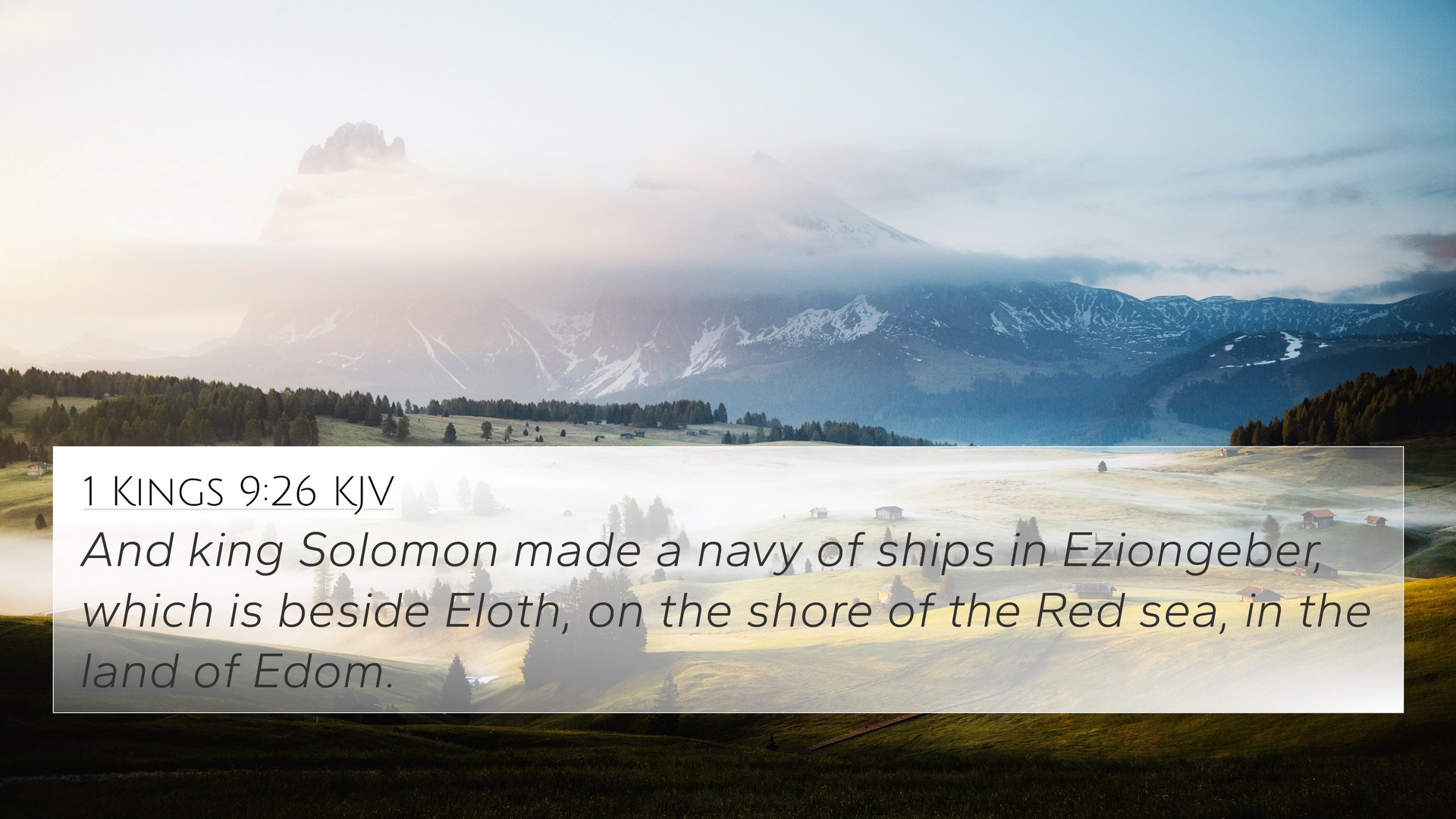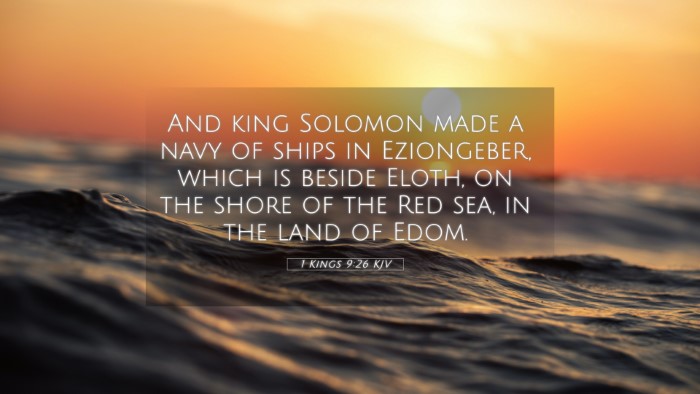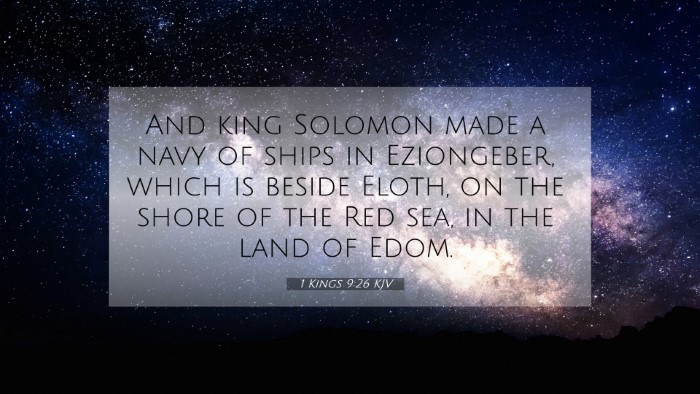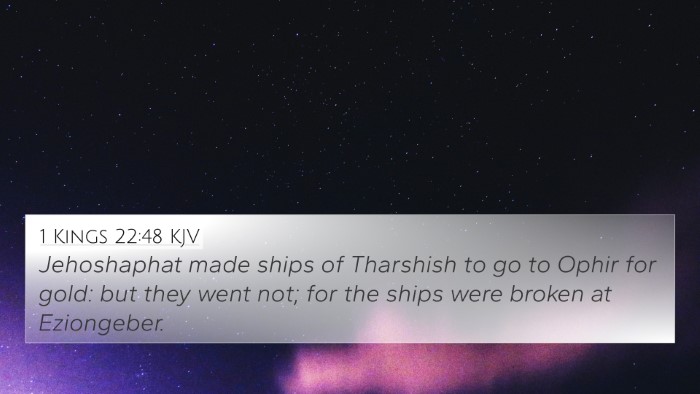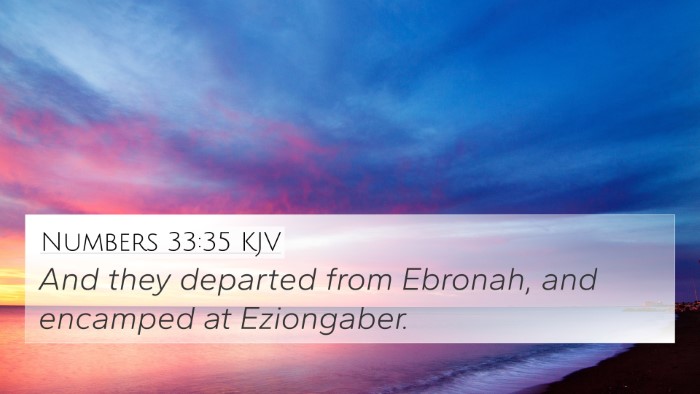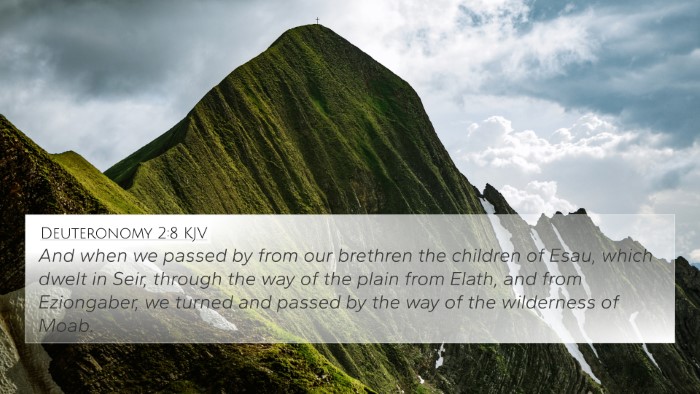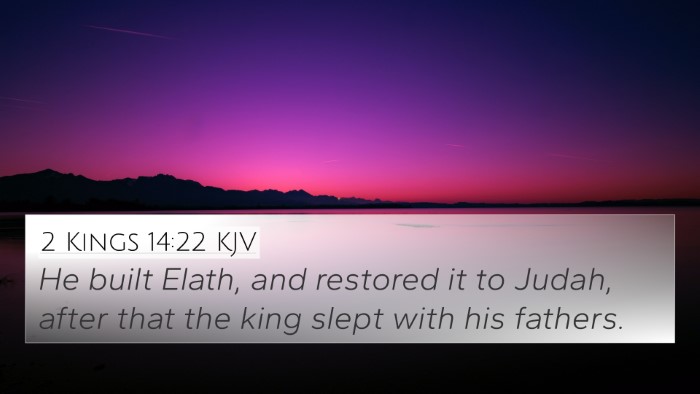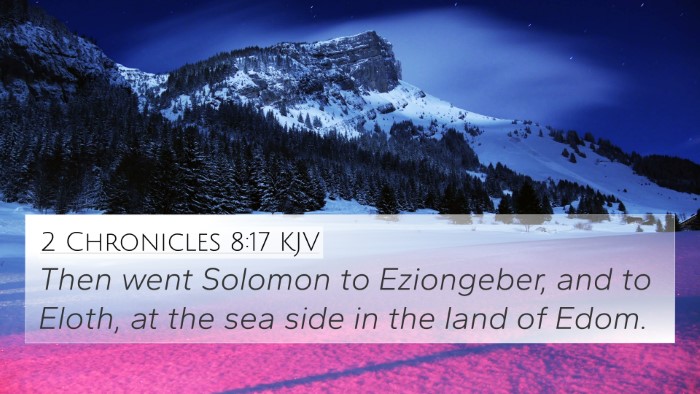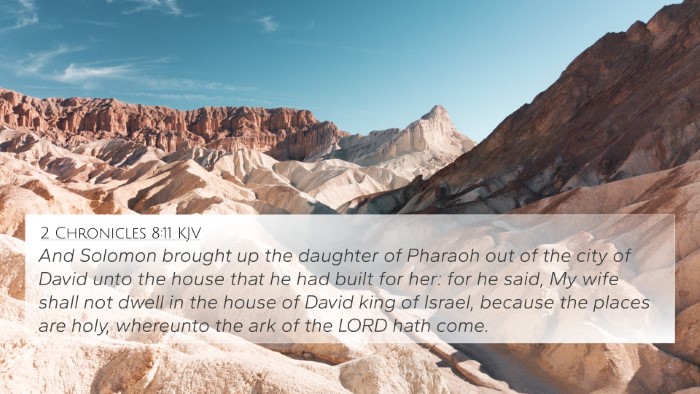Meaning and Interpretation of 1 Kings 9:26
1 Kings 9:26 states: "And king Solomon made a navy of ships in Ezion-geber, which is beside Eloth, on the shore of the Red sea, in the land of Edom."
This verse signifies several key aspects of Solomon's reign, particularly his accomplishments in maritime trade and expansion of Israel's economic power. Below, we explore the multifaceted implications of the verse based on insights from various public domain commentaries.
Contextual Background
In understanding this verse, it's essential to consider the historical and geographical context. This period in Israel's history was marked by prosperity and expansion under King Solomon’s rule. The references to Ezion-geber and Eloth highlight strategic locations for trade routes.
Insights from Commentaries
-
Matthew Henry:
Henry emphasizes Solomon's endeavor to build a navy, which reflects both his ambition and foresight. The construction of ships not only provided means for trade but also strategic military advantages, connecting Israel to the surrounding nations.
-
Albert Barnes:
Barnes points out that Ezion-geber was a significant port on the Gulf of Aqaba. Solomon’s investment in a navy illustrates his intent to conduct trade with distant lands, thus enriching his kingdom and bringing goods such as gold, silver, and exotic materials.
-
Adam Clarke:
Clarke discusses the broader implications of this naval establishment, suggesting that it marked a turning point in Israel's economic strategy. The ships symbolized an opening to not just trade but also to international relations, expanding Israel’s influence beyond its borders.
Significance of the Locations
The locations mentioned, Ezion-geber and Eloth, held strategic military and commercial importance:
-
Ezion-geber: An ancient port city essential for maritime endeavors.
-
Eloth: Served as a gateway for trade routes connecting to regions rich in resources.
Bible Verse Cross-References
This verse connects to various other scripture passages that highlight similar themes of trade, prosperity, and naval power:
- 2 Chronicles 8:17-18: Further elaborates on Solomon's naval activities.
- 1 Kings 10:22: Discusses the wealth brought to Solomon through trade vessels.
- Isaiah 60:9: Prophecies of ships of Tarshish bringing wealth to God’s people.
- Psalm 72:10: Kings of Sheba and Seba bringing gifts, indicating trade.
- Acts 27:6: References a ship from Alexandria, illustrating continued maritime commerce.
- Revelation 18:17: Discusses the fall of Babylon, highlighting the importance of maritime commerce.
- Ezekiel 27:12: Describes Tyre's trade, reflecting Israel's connections through sea trade.
Thematic Bible Verse Connections
Throughout Scripture, the theme of maritime activities highlights both literal and spiritual journeys:
- Matthew 4:19: Jesus calling fishermen signifies the transformation of trades.
- John 21:6: Miraculous catch of fish symbolizes God’s provision and blessings.
- Mark 4:39: Jesus calming the storm reflects His sovereignty over nature.
Conclusion
The verse from 1 Kings 9:26 encapsulates the essence of Solomon’s ambition, strategic prowess, and the importance of trade in ancient Israel. By establishing a navy, Solomon not only sought to enhance his kingdom's wealth but also laid the groundwork for future generations to understand the significance of maritime commerce in biblical narratives.
Understanding such connections aids deeper study and interpretation of the Bible, showcasing how verses interlink to reveal comprehensive biblical themes. Utilizing tools for Bible cross-referencing and a Bible concordance can further enrich this study, enabling a broader grasp of scripture.
